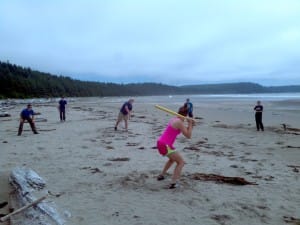Adventure Treks – Helping Build the Skills Which Lead to Adult Success
We are finishing our first round of trips and getting ready to open our remaining 8 adventures. I’m writing this from a Jet bound from Seattle to NC to visit our Blue Ridge Adventure and Camp Pinnacle kids. I’ve spent the past few days with our Alaska 2 students, our British Columbia 1 students, and our Leadership Summit students, the latter are our oldest (many 4 and 5 year AT veterans.)
What is apparent to me is how much our students are being affected by their AT experience and how their achievements (both social and physical) are building the confidence and other skills that will help them later in life. Meanwhile, they are simply having a great time with friends, enjoying nature and finding an escape from their busy lives.
As parents, we all want our kids to be successful. The definition of what defines success varies from family to family. Often we correlate success with income. Living in poverty does make one less likely to be happy but after a comfortable level of income, all the research demonstrates that wealth alone is not a predictor of happiness. So, if ultimately we decide it’s more important for our kids to become happy adults than rich adults, then we may find other outcomes in which to steer our kids towards. We believe that happiness is better correlated with having the ability to pursue ones interests, having a large degree of control over the direction of one’s life, feeling that one’s energy and efforts make a difference in the lives of others, and being able to contribute to something greater than self. Having a large network of friends, and a close family are also key indicators.
So, at Adventure Treks we are working to help our students grow in ways that correlate highest with the outcomes listed above. We believe (and research supports) that the key skills kids need to reach these outcomes are social achievement, optimism, self – esteem and resilience. While some kids do have a genetic predisposition to these traits, the great thing is that these are for the most part not innate traits but skills which can be learned, practiced and improved. We feel the Adventure Treks program is uniquely suited to help students practice and develop these aptitudes.
Research by Christine Carter has shown that a person’s happiness is best predicted by the breadth and depth of their social connections. Our outdoor environment and strong community focus makes Adventure Treks a fantastic place to improve social achievement or the ability to form and maintain relationships (a 2010/11 UNH Study on Social Achievement in the outdoors showed Adventure Treks significantly improved teens social achievement scores.)
High self – esteem has also been a great predictor of success. The world went a bit askew, however, when this was discovered. Folks thought that if every kid was constantly told they were great, they would have high self-esteem. It didn’t work. (Except for the trophy industry.) Praise only works when it’s earned. And, it’s always best to praise kids for working hard rather than for being smart or talented. Kids who are praised for working hard are more eager to try even harder the next time, while kids who are praised for being smart are less likely to try hard because if they fail, then they will ”no longer be considered smart.”
An optimistic outlook on life is said to be a bigger predictor of success than IQ. Resilience ties in with optimism in that both give one the ability to feel that you have an element of control over your life. If you know that you will rise above whatever life throws you. And that you can eventually solve most any problem that comes your way. (Usually through hard work and some help from your friends), you are more likely to have the confidence to pursue your chosen path. Having fun in a rainstorm, when you haven’t had a shower for a week while hiking uphill in the mud is a great way to build resilience. Many places might call this torture. At AT, we make it fun!
Our goal at AT is to help kids discover the tools to succeed. First off, we are not miracle workers. 16 days at Adventure Treks won’t give you a resilient kid, if he or she was not before. We know we begin with great kids in the first place. We also know from the success of our students and the credits they send our way, that what we do is working!
Here is a model from Harvard Psychologist; Edward Hallowell that best describes why Adventure Treks works. Disclaimer – we developed, tweaked and re-tweaked our program first, this model just happens to fit. Of course, having a leading Harvard Child psychologist and noted author build a model that correlates well with what Adventure Treks does, makes us smile!
Connections – Play – Practice – Mastery – Recognition
For kids to grow, it is most effectively done when they are in a safe place. And that begins with feeling a huge sense of connection, like a functional family. At Adventure Treks, the focus especially in the early days of a trip is to lay the groundwork for a good community. We get to know our students, make them feel comfortable and let them know we care about both their experience and their success. This creates the comfort level that gives them the space to grow. Removing them from society without electronics and having a 1:4 instructor to student ratio helps the community evolve safely, quickly and in the directions we intend.
At Adventure Treks, we begin by letting our students take a break from the pressures of school and give them an opportunity to actually “play.” Kids don’t play much anymore. Compared to past generations, our kids are “stressed out and pressured.” But we play hard at AT and create an environment that is very conducive to having fun and making new friends. Spare time is filled with zany, fun games. Without electronics or electricity; creativity soars. And of course AT is filled with activities that are exciting, fun and challenging. When kids feel comfortable and are having a lot of fun – the groundwork for growth has been laid.
Confidence comes from competence and in a time in history when kids have lots of intellectual talent but fewer hands on skills, we give our students that chance to learn many new abilities. From setting up a tent, to cooking, to identifying trees, to learning how to canoe; Students quickly gain new skills in a large variety of areas. These new competencies build real confidence because our students have genuinely accomplished something. Learning many new things and succeeding beyond expectations magnifies growth. Kids “Practice” new skills with instructor direction and coaching until they reach a level of competence that approaches Hallowell’s “Mastery.”
Next is recognition and praise. Our hat presentations are a vehicle where students are publicly praised in front of their peers for their accomplishments. During our nightly evening meetings, students and instructors “plus” or compliment each other. By appropriately recognizing accomplishments, we are building real self – esteem based off of the real successes of our students.
As our trips conclude, I get to debrief with many of our students. Again and again I hear the real pride our students feel after successfully completing Adventure Treks. Most of their friends stayed home. Our students took a risk and succeeded beyond expectations. From summiting mountains, to making friends, to flying across the country solo, to going a week without a shower, to thriving without electronics, to contributing to the success of a group and feeling like an integral part of the communities success… All of these major accomplishments are small steps towards building the skills our students will rely on later in life.
Thank you for sharing such wonderful young people with us. I am constantly amazed but never surprised at how fantastic our Adventure Treks students are!
– Dock





